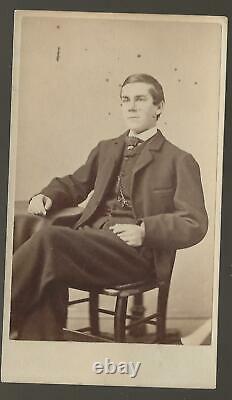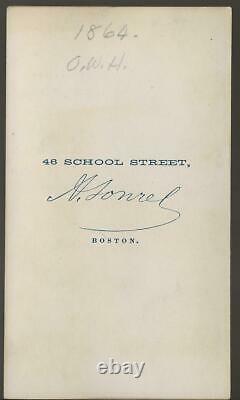
- Homepage
- Conflict
- Features
- 1st Edition (28)
- Antique, Inscribed \ (2)
- Embossed (8)
- Framed (4)
- Full Of Orig Photos (2)
- Hand Tinted (9)
- Illustrated (7)
- Limited Edition (8)
- One Of A Kind (ooak) (94)
- Photo Book (7)
- Press Photograph (4)
- Rare (2)
- Signed (4)
- Standard (3)
- Stereoscopic (9)
- Stereoview (6)
- Tintype (7)
- Union Case (42)
- Unknown (2)
- ... (6872)
- Photographer
- Subject
- Children & Infants (21)
- Civil War (31)
- Civil War Soldier (12)
- Ethnic (17)
- Family (25)
- Fashion & Costumes (10)
- Figures & Portraits (149)
- Genealogy (10)
- Historic & Vintage (90)
- History (24)
- Men (59)
- Men, Civil War (59)
- Men, Military (41)
- Military (98)
- Military & Political (588)
- Military & War (14)
- Portrait (15)
- Portraits (14)
- Soldier (12)
- Women (19)
- ... (5812)
- Theme
- Americana (42)
- Americana, Fashion (18)
- Americana, Militaria (19)
- Antique (8)
- Art (7)
- Civil War (14)
- Conflicts & Wars (7)
- Fashion (19)
- History (44)
- History, Militaria (10)
- Love (6)
- Militaria (1074)
- Patriotic (7)
- People (21)
- Politics (15)
- Portrait (69)
- Portrait, Man (22)
- Stamps (28)
- Travel (6)
- Victorian (7)
- ... (5677)
- Type
- Belt Buckle (3)
- Carte De Visite (2)
- Cdv (3)
- Cdv Photograph (15)
- Daguerreotype (3)
- Full Cdv Photo Album (2)
- Illustrated Book (3)
- Negative Film Photo (4)
- Pendant (3)
- Photo Album (3)
- Photo Frame (2)
- Photograph (1391)
- Photograph Album (54)
- Picture Book (8)
- Picture Frames (8)
- Print (4)
- Real Photo (rppc) (10)
- Tintype (9)
- Tintype Photo (4)
- ... (5589)
1864 Civil War CDV Oliver Wendell Holmes, 20th Mass Vols Supreme Court Justice




(March 8, 1841 March 6, 1935) was an American jurist who served as an Associate Justice of the Supreme Court of the United States from 1902 to 1932, and as Acting Chief Justice of the United States in JanuaryFebruary 1930. Noted for his long service, concise and pithy opinions, and deference to the decisions of elected legislatures, he is one of the most widely cited United States Supreme Court justices in history, particularly for his "clear and present danger" opinion for a unanimous Court in the 1919 case of Schenck v. United States, and is one of the most influential American common law judges, honored during his lifetime in Great Britain as well as the United States. Holmes retired from the court at the age of 90, making him the oldest justice in the Supreme Court's history. He also served as an Associate Justice and as Chief Justice of the Massachusetts Supreme Judicial Court, and was Weld Professor of Law at his alma mater, Harvard Law School. Profoundly influenced by his experience fighting in the American Civil War, Holmes helped move American legal thinking towards legal realism, as summed up in his maxim: The life of the law has not been logic; it has been experience. [2] Holmes espoused a form of moral skepticism and opposed the doctrine of natural law, marking a significant shift in American jurisprudence. In one of his most famous opinions, his dissent in Abrams v.
United States (1919), he regarded the United States Constitution as "an experiment, as all life is an experiment" and believed that as a consequence we should be eternally vigilant against attempts to check the expression of opinions that we loathe and believe to be fraught with death. [3] During his tenure on the Supreme Court, to which he was appointed by President Theodore Roosevelt, he supported efforts for economic regulation and advocated broad freedom of speech under the First Amendment. These positions as well as his distinctive personality and writing style made him a popular figure, especially with American progressives. [4] His jurisprudence influenced much subsequent American legal thinking, including judicial consensus supporting New Deal regulatory law, and influential schools of pragmatism, critical legal studies, and law and economics.
He was one of only a handful of justices to be known as a scholar; The Journal of Legal Studies has identified Holmes as the third-most cited American legal scholar of the 20th century. During his senior year of college, at the outset of the American Civil War, Holmes enlisted in the fourth battalion, Massachusetts militia, then received a commission as first lieutenant in the Twentieth Regiment of Massachusetts Volunteer Infantry. He saw much action, taking part in the Peninsula Campaign, the Battle of Fredricksburg and the Wilderness, suffering wounds at the Battle of Ball's Bluff, Antietam, and Chancellorsville, and suffered from a near-fatal case of dysentery. He particularly admired and was close to Henry Livermore Abbott, a fellow officer in the 20th Massachusetts. Holmes rose to the rank of lieutenant colonel, but eschewed promotion in his regiment and served on the staff of the VI Corps during the Wilderness Campaign.Abbott took command of the regiment in his place, and was later killed. Holmes is said to have shouted to Abraham Lincoln to take cover during the Battle of Fort Stevens, although this is commonly regarded as apocryphal.
[8][9][10][11] Holmes himself expressed uncertainty about who had warned Lincoln Some say it was an enlisted man who shouted at Lincoln; others suggest it was General Wright who brusquely ordered Lincoln to safety. But for a certainty, the 6 foot 4 inch Lincoln, in frock coat and top hat, stood peering through field glasses from behind a parapet at the onrushing rebels. [12] and other sources state he likely was not present on the day Lincoln visited Fort Stevens. Holmes received a brevet (honorary) promotion to colonel in recognition of his services during the war. He retired to his home in Boston after his three-year enlistment ended in 1864, weary and ill, his regiment disbanded. The item "1864 Civil War CDV Oliver Wendell Holmes, 20th Mass Vols Supreme Court Justice" is in sale since Friday, April 17, 2020. This item is in the category "Collectibles\Militaria\Civil War (1861-65)\Original Period Items\Photographs". The seller is "civil_war_photos" and is located in Midland, Michigan. This item can be shipped worldwide.
- Modified Item: No
- Country/Region of Manufacture: United States

